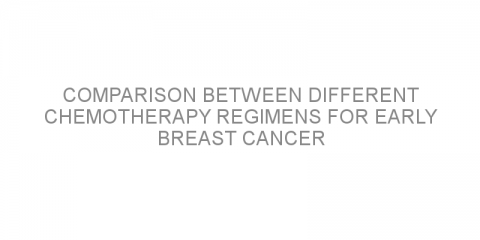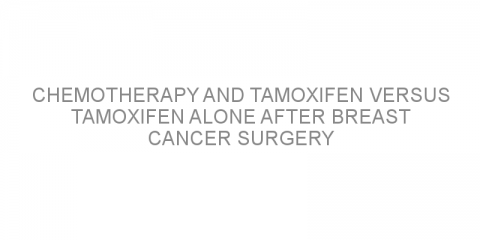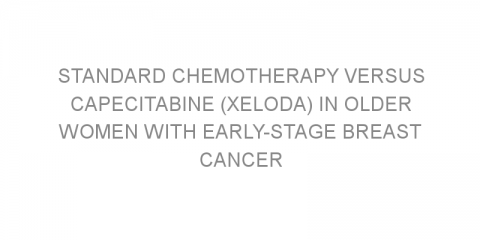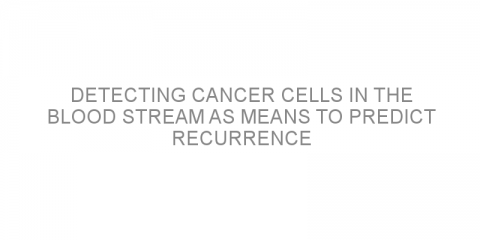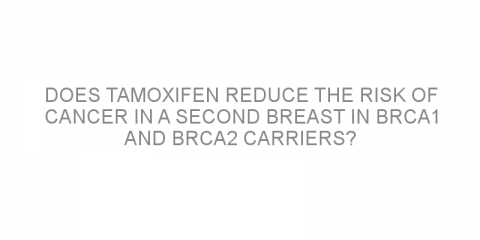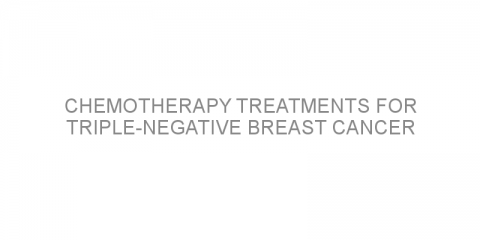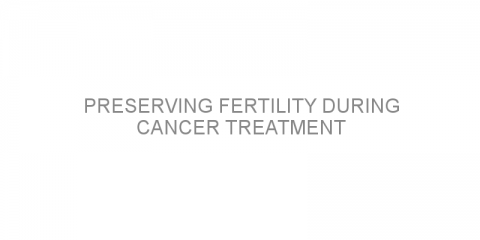In a nutshell The present study compared the long-term efficacy and safety of different adjuvant chemotherapy regimens for breast cancer. Main results: chemotherapy clearly provides survival benefits; the higher the dosage, the higher the survival rates, despite more toxicity. Some background Many women with early stage breast cancer receive...
Read MoreCurrently pregnant or breastfeeding-Neither Posts on Medivizor
Postoperative radiotherapy prevents breast cancer recurrence and prolongs survival
In a nutshell This study evaluated if strategies to prevent cancer recurrence are associated with prolonged survival 15 years after treatment. Their main findings were that postoperative radiation managed to prevent cancer recurrence and was associated with higher rates of long-term survival. Some background Early breast cancer is often treated...
Read MoreEvaluating the addition of Capecitabine to postoperative standard chemotherapy
In a nutshell This article presents summarized data from two clinical trials. The trials evaluated the addition of Capecitabine to standard postoperative chemotherapy for patients with high risk early breast cancer. Some background Capecitabine is a chemotherapy drug that is taken orally and slows the growth of tumors. It can be...
Read MoreChemotherapy and Tamoxifen versus Tamoxifen alone after Breast Cancer Surgery
In a nutshell In this study chemotherapy and Tamoxifen were compared to Tamoxifen alone as complementary treatments after surgery for breast cancer. The main finding was that better results are obtained by adding chemotherapy. Some background Tamoxifen is a drug used for tumors which require the female hormone estrogen to grow. It...
Read MoreStandard Chemotherapy versus Capecitabine (Xeloda) in Older Women with Early-Stage Breast Cancer
In a nutshell This trial compared standard chemotherapy regimens and Capecitabine (Xeloda) in women over 65 years old. The main outcome was that standard chemotherapy worked better in this age group. Some background Capecitabine is generally used in breast cancer resistant to other chemotherapy. It is also the first approved treatment that can be...
Read MoreDetecting cancer cells in the blood stream as means to predict recurrence
In a nutshell The present study evaluated whether the presence of cancer cells in the blood stream predicts a worse prognosis in women with operable breast cancer. The main finding was that progression-free survival (time before cancer progression) and overall survival were lower if circulating cancer cells were detected in the blood. Some background...
Read MoreWhat is the preferred duration of chemotherapy? – A review of clinical trials
The aim of this paper was to identify if a longer course of chemotherapy was better than a short course. The authors look at how long patients survived with metastatic breast cancer or with no further cancer progression. Breast cancer is called metastatic when it has spread from the breast to other parts of the body such as the lymph nodes, lungs,...
Read MoreDoes Tamoxifen reduce the risk of cancer in a second breast in BRCA1 and BRCA2 carriers?
In a nutshell The risk of breast cancer is high (~80%) in women who inherit a damaged (mutated) gene called BRCA1 or BRCA 2 (‘BRCA carriers’). Following the first diagnosis, their risk of developing another tumor in the second breast within 10 years is 30%. Some background Some types of breast cancer need estrogen (female sex...
Read MoreChemotherapy Treatments For Triple-Negative Breast Cancer
This paper reviews chemotherapy options for triple-negative breast cancers. Breast cancer cells express 3 main receptors that can be targeted with therapy: Estrogen receptors (ER), Progesterone receptors (PR) and HER2. Triple-negative breast cancers (TNBCs) do not express these 3 receptors and make up approximately 15% of breast cancers. Such tumors do...
Read MorePreserving Fertility during Cancer Treatment
In a nutshell This paper reviews available options for having children after cancer treatment. The main conclusion is that sperm, egg and embryo preservation techniques can help young women have children after breast cancer treatment. Alternative options, such as ovarian tissue preservation, are also being developed. Some background...
Read More
